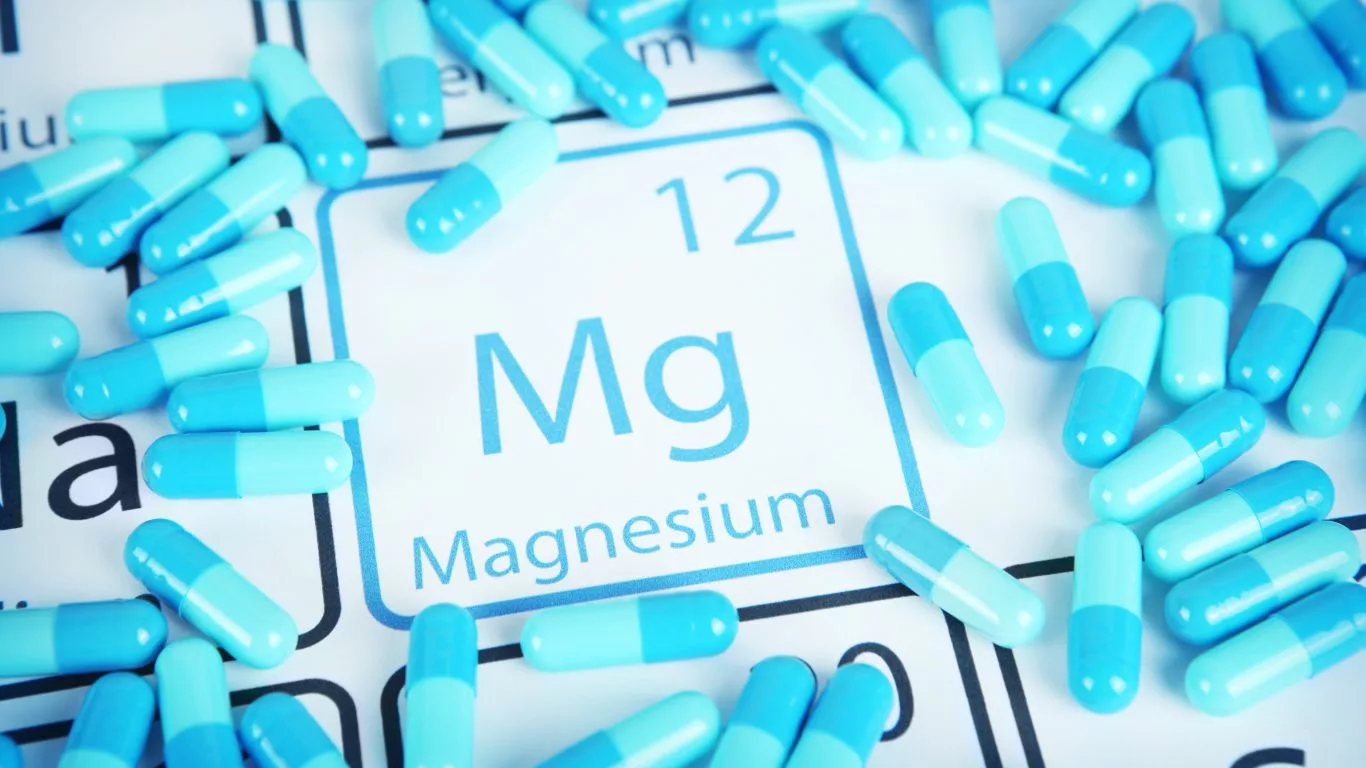Magnesium Supplements for Heartburn Relief That Actually Work
If you’ve ever reached for an antacid during a bout of heartburn, you might’ve noticed magnesium on the label. For me, magnesium used to be just “that mineral” found in spinach or almonds. But after months of struggling with nighttime reflux and trying nearly every trick in the book, magnesium turned out to be one of the most underrated game-changers. But is it really that effective for everyone? Let’s break down what science, experts, and personal experience say about magnesium supplements for acid reflux and heartburn.
Understanding Magnesium’s Role in Digestion

Magnesium plays a critical role in over 300 enzyme systems in the body—including those that regulate muscle contraction, nerve function, and, interestingly, digestion. When it comes to acid reflux and heartburn, magnesium may help relax the lower esophageal sphincter (LES) muscles gently and promote smoother gastrointestinal motility, potentially reducing pressure buildup in the stomach.
According to research published in the Nutrients journal, magnesium also helps neutralize stomach acid and acts as a mild natural laxative, which can be beneficial for people whose reflux is linked to constipation.
But wait—can it cause reflux?
Here’s where it gets tricky. Some magnesium formulations—like magnesium oxide—may worsen reflux symptoms in sensitive individuals due to their lower absorption and potential to irritate the stomach lining. This is why form matters just as much as the mineral itself (more on that later).
Why People Turn to Magnesium for Heartburn Relief

Let’s face it, conventional antacids and PPIs (proton pump inhibitors) work—until they don’t. After long-term use, they can lead to nutrient deficiencies, rebound reflux, or just stop being effective. That’s one reason I began exploring alternatives like magnesium.
Several natural remedies for acid reflux include magnesium as a base ingredient, and for good reason. It’s gentle, affordable, and doesn’t require a prescription. Plus, it’s often found in combination antacids like Maalox and Mylanta. But pure magnesium supplementation offers more flexibility in dosing and less unnecessary fillers.
Benefits backed by experience and studies:
- Improved gut motility: Prevents bloating and constipation-related reflux
- Neutralizes excess stomach acid: Especially helpful during flare-ups
- Supports muscle relaxation: Can reduce esophageal spasms
- May improve sleep: Nighttime reflux sufferers take note
Even Mayo Clinic lists magnesium among the minerals essential for maintaining nerve and muscle function, a factor closely linked to digestive tract health.
Forms of Magnesium: Which Type Is Best for GERD?

Not all magnesium supplements are created equal. I learned this the hard way when I first tried magnesium oxide and ended up with a bloated stomach and zero heartburn relief. Choosing the right form is key to getting results without side effects.
Here are the most common types and how they stack up:
- Magnesium Glycinate: Highly bioavailable and gentle on the stomach. Ideal for sensitive digestion and long-term use.
- Magnesium Citrate: Well-absorbed but can have a mild laxative effect. Good if constipation is part of your reflux pattern.
- Magnesium Oxide: Poorly absorbed, more irritating. Best avoided for GERD relief.
- Magnesium Carbonate: Often used in antacids, moderately effective in neutralizing acid.
- Magnesium Hydroxide: Found in milk of magnesia, useful for occasional relief but not for daily use.
Based on my own trial-and-error journey, magnesium glycinate worked best—it calmed my nervous system and helped with both sleep and reflux. I found this combo especially useful during stressful weeks when my GERD would usually flare up.
Is Magnesium Deficiency Making Your Heartburn Worse?

This one surprised me. I didn’t realize how many common symptoms I was brushing off—like muscle twitches, fatigue, and irritability—were linked to low magnesium levels. Turns out, people on long-term PPIs or antacids are more likely to be magnesium deficient, according to a review in the World Journal of Gastrointestinal Pharmacology and Therapeutics.
If you’ve been using acid-suppressing meds for a while and your heartburn is getting worse or evolving into other symptoms, it might be time to evaluate your magnesium status.
Signs of possible deficiency:
- Muscle cramps or twitches
- Fatigue or general weakness
- Poor sleep or nighttime restlessness
- Anxiety or brain fog
- Heart palpitations (in severe cases)
Magnesium not only supports stomach lining repair but also helps regulate your body’s stress response—another key reflux trigger many overlook.
For a more complete look at how lifestyle changes impact heartburn and magnesium absorption, I recommend checking out this expert-backed guide on GERD lifestyle changes.
How to Take Magnesium for Heartburn Relief Safely

Once I figured out the right form of magnesium, the next challenge was figuring out *how much* to take and *when*. There’s no one-size-fits-all approach, but there are some safe, science-backed guidelines that helped me—and could help you, too.
Most adults require 310–420 mg of magnesium per day depending on age and gender, according to the National Institutes of Health. If your diet is lacking or you’ve been on heartburn medication long-term, supplementing may fill the gap—but moderation is key.
When to take magnesium for reflux?
In my experience (and confirmed by functional health experts), taking magnesium in the evening offers dual benefits: digestive relief and deeper sleep. For those dealing with nighttime GERD symptoms, this timing may be especially helpful.
However, if you’re using a magnesium-based antacid like magnesium hydroxide, that’s usually taken as-needed after meals or at bedtime. Just don’t confuse this with daily magnesium supplements—they serve slightly different purposes.
Best practices to get the most out of magnesium:
- Start low: Begin with 100–200 mg and see how your body reacts
- Take with food: Especially if you’re using magnesium citrate or carbonate to avoid stomach upset
- Space out medications: Leave 2–3 hours between magnesium and acid-reducing meds (more on that below)
- Choose third-party tested brands: Purity matters when taking supplements long-term
Magnesium and Heartburn Medications: What to Know

One thing I didn’t realize early on was that magnesium can interfere with the absorption of certain medications. If you’re taking a proton pump inhibitor (PPI), H2 blocker, or even antibiotics, timing your magnesium dose becomes even more important.
Interaction examples to watch for:
- PPIs and H2 blockers: Long-term use may lead to low magnesium levels
- Antibiotics like tetracycline or ciprofloxacin: Magnesium can bind and reduce their effectiveness
- Bisphosphonates (for bone health): Absorption may be reduced if taken too close to magnesium
This is why many doctors (and my integrative GP) recommend staggering magnesium by at least 2 hours from these medications. If you’re unsure, a pharmacist can give precise timing advice based on your current prescriptions.
There’s a well-documented link between long-term use of acid-reducing medications and complications of untreated GERD—including nutrient malabsorption. That’s another reason why magnesium can be a valuable tool for long-term wellness management.
Who Should Avoid Magnesium Supplements?

Even though magnesium is “natural,” it’s not for everyone. I always stress this to friends experimenting with supplements—what works for me may not work for you, especially if you have existing health conditions.
According to Cleveland Clinic, people with kidney disease or severe heart issues should be cautious, as excess magnesium can accumulate in the body and cause problems like irregular heartbeat or low blood pressure.
Avoid or speak with a doctor if you:
- Have advanced kidney disease or impaired kidney function
- Are already taking multiple mineral supplements (risk of overlap)
- Have slow digestion or intestinal blockages
- Are pregnant or nursing (seek professional advice first)
I made sure to get a blood test to check my magnesium levels first—something I now recommend before taking any supplement long-term. It gave me peace of mind and helped me tailor the right dosage without playing guessing games.
Magnesium-Rich Foods: A Natural Way to Support Heartburn Relief

If supplements aren’t your thing, good news: you can still up your magnesium intake naturally. This is also a great approach if you want to make holistic lifestyle changes to ease your reflux symptoms.
Top magnesium-rich foods that are also GERD-friendly:
- Spinach – steamed is better tolerated than raw
- Pumpkin seeds – a small handful packs a big mineral punch
- Bananas – soothing and gentle on the stomach
- Oats – a great breakfast for reflux and magnesium
- Avocados – rich in healthy fats and nutrients
Many of these foods also appear on the best GERD diet plans, making them easy to integrate into your meals without triggering symptoms. Personally, I started adding soaked pumpkin seeds to my oatmeal and it made a surprisingly noticeable difference over time.
Just like any wellness journey, consistency and personalization are key. Magnesium might not be a magic pill, but for many of us—including myself—it’s one of the most natural, safe, and underrated tools in the reflux-fighting toolbox.
How to Choose the Best Magnesium Supplement for Your Needs

Walking into a supplement store can feel overwhelming. Dozens of magnesium bottles on the shelves—capsules, powders, liquids—and each claiming to be the “most absorbable” or “fast-acting.” I’ve been there, staring blankly and wondering if the price tag really makes a difference.
After months of trial, research, and asking around (including a functional medicine dietitian), here’s what truly matters when selecting a magnesium supplement for acid reflux relief:
Things to look for on the label:
- Type of magnesium: Aim for glycinate, citrate, or carbonate for best results and fewer side effects
- Elemental magnesium amount: Not all 500 mg tablets give you 500 mg of usable magnesium—check the “elemental” number
- Third-party testing: Choose brands that are USP-verified or NSF-certified for purity
- Additive-free: Skip anything with artificial dyes, titanium dioxide, or unnecessary fillers
Some well-reviewed, clean-label brands include Pure Encapsulations, Thorne, and Doctor’s Best—though always consult your healthcare provider before starting something new.
How Do You Know Magnesium Is Working?

Magnesium isn’t one of those “instant fix” types of solutions. It works more like a slow and steady helper, gradually calming the digestive system, balancing acid, and relaxing the esophageal muscles that tend to spasm during reflux episodes.
Here are some subtle but noticeable signs I personally experienced within a few weeks:
- Reduced frequency of reflux episodes, especially post-meal or before bed
- Less throat irritation when waking up in the morning
- Improved bowel regularity (often overlooked but essential for reflux control)
- Fewer night wakings from chest burning or coughing
- More restful sleep overall—magnesium’s calming effect really helped here
If after 2–3 weeks you don’t notice any difference, it could mean one of three things: you’re using the wrong form, your dose is too low, or magnesium isn’t the core issue behind your reflux. In that case, exploring accurate diagnostic options for GERD might be a better next step.
Tips for Long-Term Use of Magnesium for Heartburn

One of the smartest moves I made after discovering magnesium’s benefits was integrating it into a broader reflux prevention plan. Here’s what’s worked for me—and many others I’ve shared this journey with:
Simple strategies to maintain results:
- Pair with lifestyle shifts: Magnesium works best alongside natural heartburn remedies like mindful eating and posture awareness
- Cycle your dosage: Take small breaks every 8–12 weeks to reassess your body’s response
- Rotate sources: Mix in dietary magnesium from fiber-rich, reflux-friendly foods
- Track symptoms: A journal helped me see patterns I wouldn’t have noticed otherwise—especially on high-stress days
Another overlooked but powerful habit is **hydration**. Magnesium supports electrolyte balance, but if you’re dehydrated, it won’t absorb or function as efficiently. I’ve personally felt more reflux relief when pairing magnesium with a steady water intake throughout the day.
Who Else Might Benefit from Magnesium (Besides GERD Sufferers)?

Though we’ve focused on magnesium for reflux relief, its ripple effects on health are pretty impressive. If you’re someone who struggles with more than just heartburn—like anxiety, insomnia, or muscle tension—magnesium might offer a broader calming effect you didn’t expect.
In fact, one reason it helps reflux is through the brain-gut connection. By supporting your nervous system and reducing stress hormones, magnesium may help calm the digestive tract—especially in cases of reflux triggered by anxiety.
And if you’re someone navigating symptoms that come and go—especially under stress, poor sleep, or travel—keeping magnesium in your toolkit might be one of the more practical, natural options available.
Putting It All Together

Heartburn doesn’t have to mean a lifetime of bland meals or pill bottles. For many of us, it’s a sign of imbalance—and magnesium offers a surprisingly gentle way to help restore it. Whether you’re adding a supplement, boosting magnesium-rich foods, or simply becoming more aware of how your body responds, this mineral deserves more attention than it gets.
While magnesium alone may not be the end-all-be-all for severe reflux, it’s often a smart place to start—especially if your symptoms are mild, stress-related, or tied to digestion issues. For a deeper dive into other effective options, don’t miss our complete resource on the best GERD treatments for lasting relief.

Camellia Wulansari is a dedicated Medical Assistant at a local clinic and a passionate health writer at Healthusias.com. With years of hands-on experience in patient care and a deep interest in preventive medicine, she bridges the gap between clinical knowledge and accessible health information. Camellia specializes in writing about digestive health, chronic conditions like GERD and hypertension, respiratory issues, and autoimmune diseases, aiming to empower readers with practical, easy-to-understand insights. When she’s not assisting patients or writing, you’ll find her enjoying quiet mornings with coffee and a medical journal in hand—or jamming to her favorite metal band, Lamb of God.







